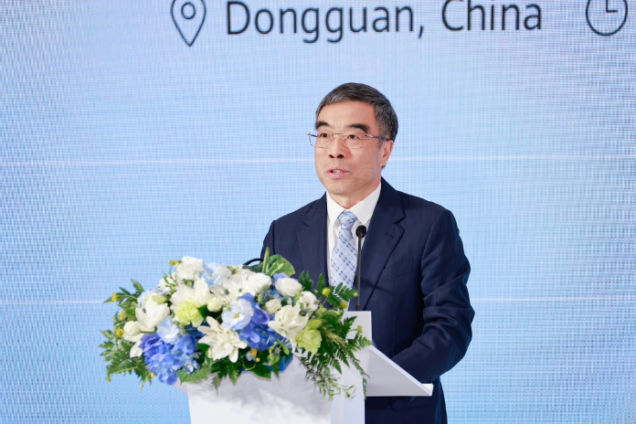
Audio By Carbonatix
The Chairman of the Board of Huawei has advocated universal access as he said that stable connectivity is not only a fundamental right for every individual but also a cornerstone of the digital economy.
Liang Hua speaking at the 3rd Huawei Sustainability Forum said, “Everyone should have access to stable connectivity.
"We see connectivity not just as a basic right for every person, but also as a cornerstone of the digital economy”.
The International Telecommunication Union (ITU) indicates that, by the end of September 2023, nearly 2.6 billion people, about 33% of the world's population, had never used the Internet.
Most of these people, the ITU indicated, are from developing countries or underserved rural communities.
In today’s rapidly evolving world, infrastructure plays a critical role in shaping the future of society.
While traditional infrastructure, including roads, bridges and power grids, has long been recognised as the backbone of economic growth and development, digital infrastructure is evolving to form the foundation of a sustainable and equitable society.
Digital infrastructure, particularly connectivity and computing power, has emerged as a crucial driver of socio-economic progress, as traditional infrastructure is not meeting the demands of societies in a world filled with technological advancements.
With the world grappling with the challenges of ensuring inclusive development, next-generation digital infrastructure is becoming as essential as its physical counterpart.
The Huawei Board Chair also underscored the centrality of connectivity in fostering a thriving society.
He emphasised its role in simplifying daily routines, strengthening economies, and promoting environmental sustainability.
Mr Liang indicated that “connectivity is playing an important role in every aspect of our lives. It makes our lives easier, our economies stronger, and our environment greener.”
Moreover, he stressed the importance of a potent computing infrastructure to accelerate digital and intelligent transformation across industries.
“We need to build a stronger computing infrastructure to speed up digital and intelligent transformation across industries and integrate the development of the digital and real economies”, he said.
As the world moves towards the future, investing in next-generation infrastructure is no longer a choice, but a necessity.
Prioritising the development of a reinforced network infrastructure and strengthened computing capabilities will lay the foundation for a more sustainable, equitable, and prosperous future for all.
Latest Stories
-
Anthony Joshua’s driver charged over Nigeria crash that killed two
8 minutes -
Joseph Ayinga-Walter: Ode to Melita Happy Kutorkor Antiaye
10 minutes -
Christians usher in 2026 with prayers, declarations and renewed hope
19 minutes -
Ahmed Ibrahim rallies traditional, religious leaders support for peace building
21 minutes -
Bus returning from 31st night prayer kills 2, injures dozens at Assin Dansame
36 minutes -
Political parties must stay out of local governance – Andrew Bediako
36 minutes -
Beyond Witchcraft: Why preparation, not spiritual fear, determines success
37 minutes -
Margaret Korme Tetteh
1 hour -
Sammy Gyamfi’s work at Goldbod in few months would take someone five years – Ato Forson
2 hours -
From Accra to Wuzhen: The Ghanaian schoolgirls making their mark in global AI
2 hours -
Ghana must prioritise value addition to sustain IMF gains – Prof Asuming
2 hours -
Man allegedly poisons his incoming girlfriend over GH₵100 at Buduburam
2 hours -
Jennifer Frimpong: Ghana’s health system faces funding shock, urgent reforms needed
2 hours -
Tighter cocoa supply lifts prices as Ghana records good crop conditions
2 hours -
KAAF University donates to Widows, urges Public to end Discrimination against Elderly Widows
3 hours

